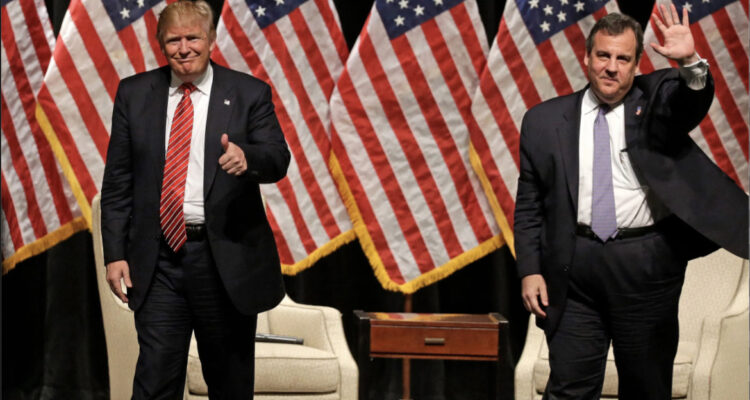The world has been a mess for … pretty much forever. I can’t think of a time when there hasn’t been something going on in the world that hasn’t made me question humanity’s morals. I’m not sure if the world has actually become more awful as I’ve gotten older or if I’m just becoming more aware of world issues, but either way, not a day goes by that I don’t think about the age-old debate of if we’re morally good or bad people.
I suppose the obvious answer is that we’re morally bad—I mean, just look at how people worldwide treat each other in the name of “helping”. But I feel like the answer is so much more complicated than that, so complicated that I certainly cannot answer it myself. However, with the world engaging in multiple wars and humanitarian crises, I think it is a valuable topic to consider.
A study by the Reno Gazette-Journal found that 47% of people who participated believe that the people of the United States have poor morals. Only 16% believe we have mostly good morals, with the remaining percentage being people who believe we are somewhat in the middle of good and evil. Another study by Barna Group found that 80% of participants are concerned about the moral state of the world.
I believe that the fundamental issue with why the United States is in turmoil is because the line between right and wrong has faded. Right and wrong is subjective, obviously, but in terms of politics, it seems the definitions of the two words have more of a set definition.
When politicians are doing their jobs “right,” people aren’t dying because of homelessness and drug crises. People can get jobs and aren’t turned away because of their identities. People aren’t killed in public. The right to healthcare is available to everyone, even if it goes against the religious beliefs of others. These are pretty basic necessities that are considered right because a politician’s job is to protect the people of their district.
The line between right and wrong in modern politics has become inevitably blurred, and it’s affecting regular citizens as well. Good and bad vary by party, sure, but the overall goal that a politician should have is to protect their people. Instead, the focus has shifted to public appeal. Elected officials from either party tend to speak out on issues that are popular in their party, commonly leaning toward the popular belief of the party. Even if the official doesn’t agree with their statement, there has become a new obsession with power and saying whatever they can to get into power.
Chris Christie is a fascinating example of this. During Former President Trump’s time in office, he was considered a friend and adviser of his, even spotted attending dinner together a few times. He even encouraged him to hire right-wing judges, even though the public concern was that these judges would implement laws that harm many groups of people, specifically by removing the legality of abortion. Christie is now running for President in 2024 to try and provide as much challenge as possible to prevent Trump from being reelected.
Why would he suddenly make such a political turn? Many people theorize he wanted to be accepted by other Republicans, so he was willing to throw away his own beliefs in order to be liked by the rest of his party. The ultimate turn came when Jared Kushner and Steve Bannon removed him from his position on Trump’s team. Now that he didn’t have a group to appeal to, he could return to his beliefs. But the damage he caused by losing his morals for party acceptance has already occurred.
When writing about the morality of American politicians, James Lemoine of the University of Buffalo said, “Members of one party are likely to attack the moral flaws of the other, but they somehow always manage to find excuses for members of their own party: ‘He’s not immoral, he’s just working the system.’” He uses the example of Brett Kavanaugh’s sexual assault allegations and how his own party, Republicans, tried to find ways to explain his behavior, whereas Democrats believed he was guilty.
Lemoine notes that the percentage of Democrats and Republicans who support Kavanaugh remained the same before and after the accusations came to light. “This represents either a startling statistical coincidence, or it suggests that members of both parties judged Kavanaugh not on the basis of the evidence around the allegations, but on whether they personally hoped to see him as a Supreme Court justice.”
Some could argue that this political shift came when Trump entered office in 2016, while others would say it dates back to when Obama was in office in 2008. A way to look at this is discussed by The Conversation, which spoke with two political philosophers on ethical politicians. They came to the conclusion that poor ethical character outside of office reflects on how the individual will do in office. “Bad ethical character can get in the way of competence, and politicians are no more able than the rest of us to turn their character traits on and off at work.”
This statement isn’t entirely out of place—many politicians today are being indicted for some sort of behind-the-scenes illegal matter. USA Today wrote an article with a list of politicians who are criminals, such as Sen. Bob Menendez, Sen. Ted Stevens, Sen. Kay Bailey Hutchison and more—all of them of different political parties.
While the issue of an entire country’s morality is hard to solve, it’s pretty easy to say that our politicians have been ethically corrupt for a long time now.


Leave a Reply